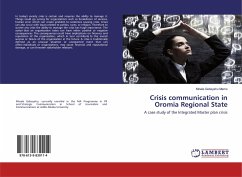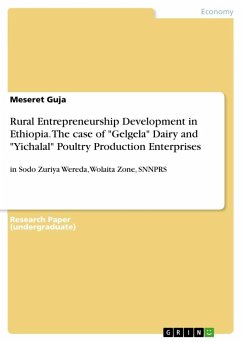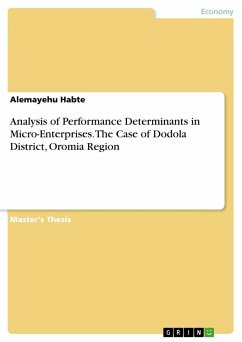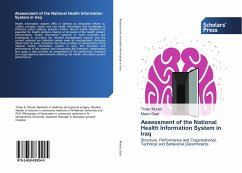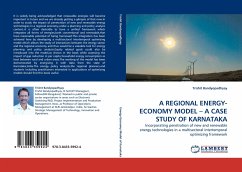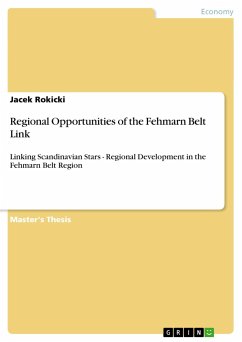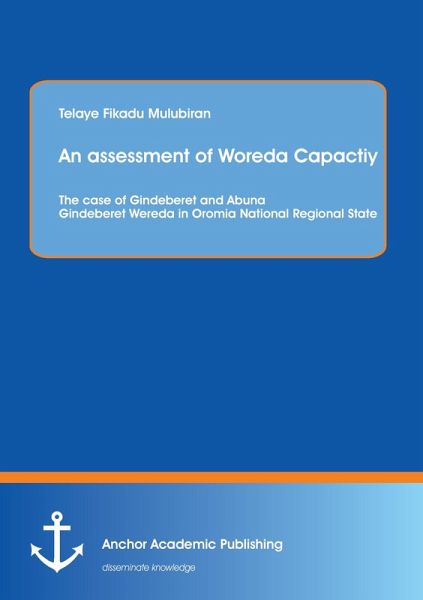
An assessment of Woreda Capactiy: The case of Gindeberet and Abuna Gindeberet Wereda in Oromia National Regional State

PAYBACK Punkte
0 °P sammeln!
This research assesses woreda capacity in Gindeberet and Abuna Gindeberet Woreda of West Shoa Zone Oromia National Regional State since the implementation of District Level Decentralization Program. To this end, the study assesses the human resource, financial, managerial, facility capacity as well as the extent to which enabling work environment and community participation is available. The findings indicate that the capacity building program which was launched to address the problem of rural woredas has not brought about significant changes though there are some improvements in terms of comm...
This research assesses woreda capacity in Gindeberet and Abuna Gindeberet Woreda of West Shoa Zone Oromia National Regional State since the implementation of District Level Decentralization Program. To this end, the study assesses the human resource, financial, managerial, facility capacity as well as the extent to which enabling work environment and community participation is available. The findings indicate that the capacity building program which was launched to address the problem of rural woredas has not brought about significant changes though there are some improvements in terms of community participation, service delivery and responsiveness to customers. However, constraints of resources and its utilization, lack of conducive work condition, lack of strong political leadership and commitment, and lack of governance system are identified as factors responsible for the ineffectiveness of the program. It is therefore recommended that for the capacity building effort to be materialized, there is a need for resources and proper utilization, strong political leadership and commitment, enabling work environment and an improved governance system.





